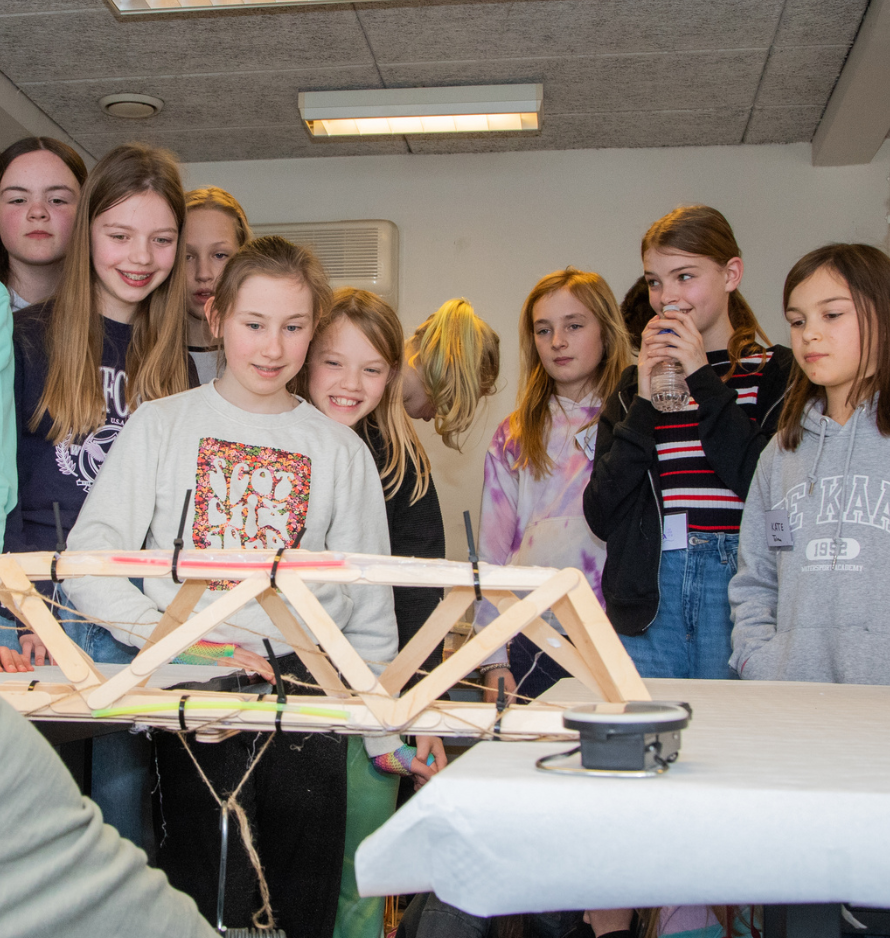4 min. read
How to Equip the Next Generation of Leaders in Tech
Creating a Culture That Empowers Junior and Mid-Level Engineers
Dear managers, you’ll want to read this.
Why it matters: it’s not just about fostering growth for individual contributors but creating a vibrant ecosystem where innovation, collaboration, and mentorship thrive. In doing so, you equip the next generation of leaders, strengthen your team’s overall capabilities, and enhance retention.
We’ve explored the transition from individual contributor to leadership, highlighting the importance of authenticity, finding one’s own leadership style, and supporting diversity and inclusion. These same principles apply when building a culture that empowers junior and mid-level engineers. By focusing on creating the right environment and leadership approach, you can significantly impact their personal and professional growth.
1. Encouraging Personal Growth Beyond Immediate Roles
For junior and mid-level engineers, it’s essential to develop skills that go beyond their current role. According to a 2023 LinkedIn report, 94% of employees would stay longer with a company that invests in their learning and development. Yet, many organisations fail to offer opportunities for personal growth that extend beyond immediate project needs.
Actionable Steps:
– Provide learning opportunities: Offer access to workshops, online courses, or tech conferences. Encourage engineers to pursue certifications or work on side projects that align with their interests.
– Internal programmes: Pair junior engineers with senior colleagues or leaders. Mentorship and sponsorship are a powerful tool for both technical and professional growth.
– Encourage cross-functional work: Enable engineers to collaborate across departments or with different teams. This can help them see the bigger picture and learn from a variety of perspectives.
Investing in these opportunities shows that you’re committed to your engineers’ long-term development, not just their ability to meet short-term goals.
2. Delegation: Letting Go to Empower Others
One of the most crucial lessons here is learning to delegate. The same applies to empowering engineers—delegation fosters responsibility, ownership, and trust. However, delegation is not just about offloading tasks; it’s about entrusting engineers with meaningful challenges that help them grow.
Actionable Steps:
– Delegate challenging tasks: Assign complex projects or problems to junior and mid-level engineers, allowing them to stretch their skills. Offer guidance, but let them take ownership of the task.
– Provide context: Explain the purpose and impact of the task. When engineers understand the “why” behind their work, they are more motivated and invested.
– Offer autonomy: Avoid micromanaging. Trust that your engineers can handle the task, but keep the door open for questions and guidance.
By offering opportunities to take on more significant responsibilities, you build their confidence and technical expertise, setting them up for future leadership roles.
3. Keeping the Door Open: Continuous Feedback and Mentorship
Creating an open and supportive environment is crucial for empowering engineers. This doesn’t just mean having formal feedback sessions during performance reviews, but establishing a culture where feedback is continuous, constructive, and two-way.
Actionable Steps:
– Regular 1:1s: Schedule frequent one-on-one meetings to check in on your engineers’ progress, concerns, and career aspirations. These meetings are essential for building trust and understanding their needs.
– Create a feedback culture: Encourage engineers to provide feedback not just on their work but on processes and leadership approaches. It creates a sense of involvement and shows that their opinions matter.
– Be approachable: Make it clear that your door (whether literal or virtual) is always open. Engineers, especially at the junior level, should feel comfortable seeking advice or clarifying doubts without hesitation.
This approach fosters an environment where engineers feel heard, valued, and supported, which is critical to their development and confidence.
4. Finding the Right Way to Be an Ally
Being an ally to your junior and mid-level engineers means advocating for their growth, well-being, and inclusion. This is particularly important for underrepresented groups in tech, such as women, people of colour, and LGBTQ+ engineers, who may face barriers that others do not. As a leader, your role is to ensure that everyone has equal access to opportunities, resources, and support.
Actionable Steps:
– Listen and understand their challenges: Each person’s experience is different, so take the time to listen to your engineers’ concerns, especially those from diverse backgrounds.
– Offer visibility and recognition: Ensure that the contributions of junior and mid-level engineers are recognised, both within the team and across the organisation. Give them credit for their work and advocate for their involvement in high-visibility projects.
– Create a psychologically safe environment: An inclusive culture thrives when individuals feel comfortable being themselves and contributing ideas without fear of judgment or exclusion. Be mindful of biases that could hinder this environment.
Being a true ally is about championing the success of others, removing obstacles, and creating a level playing field for everyone to grow and succeed.

5. Leadership by Example: Setting the Tone
As a leader, your actions set the tone for the culture of empowerment. The leadership styles discussed in the previous blog, such as servant leadership and transformational leadership, are particularly effective in creating an empowering environment. These styles focus on developing others, fostering innovation, and inspiring teams to grow.
Actionable Steps:
– Lead with empathy: Understand the challenges that junior and mid-level engineers face, and provide the support they need to overcome those challenges.
– Be transparent: Share your own experiences of growth, failure, and learning. This helps demystify the path to success and encourages engineers to embrace their own development journey.
– Promote inclusivity: Ensure that team dynamics are inclusive, encouraging the participation and perspectives of all engineers, regardless of their level.
By leading with these values, you create a culture where junior engineers feel empowered and confident in their potential for growth.
6. What Can Be Done to Empower Engineers?
To build a truly empowering culture for junior and mid-level engineers, organisations must make strategic changes that foster both individual and collective growth. Here’s what can be done:
Actionable Steps for Organisations:
– Create structured career paths: Provide clarity on the skills and experience needed to progress from junior to mid-level, and beyond. This gives engineers clear goals to work toward.
– Invest in diversity and inclusion initiatives: Foster a diverse talent pool by offering opportunities for underrepresented groups. For example, Google’s diversity reports show that their efforts to hire more women in tech have resulted in increased innovation and collaboration.
– Offer stretch assignments: Allow engineers to work on projects outside of their immediate role or comfort zone, challenging them to grow and learn new skills.
Actionable Steps for Leaders:
– Remove barriers to growth: If engineers are bogged down by mundane tasks, find ways to streamline or automate those processes. Give them time to focus on high-impact work.
– Encourage peer mentoring: Foster a culture of learning by encouraging engineers to support and mentor each other, regardless of level.
– Recognise contributions: Publicly acknowledge the work of junior and mid-level engineers, ensuring they feel valued and appreciated.





